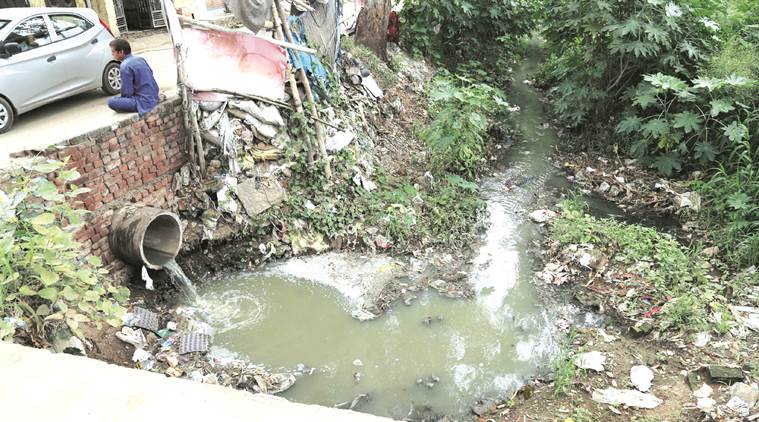Sukhna Lake reserve forest which is spread over an area of 153,90 hectare was being polluted by the sewage water from last many years.
The high court has been monitoring the case since they had taken suo motu notice of the depletion in water level in Sukhna Lake in 2009.
Sukhna Lake reserve forest was dying until Forest Department took matters in their hand. Forest Officer Karan Singh did something that even the government of Punjab and Haryana couldn’t do. His brilliant idea single-handedly saved Sukhna and worked as a miracle for this reserve forest.
Why Sukhna Was Dying:-

The sewage water which was discharged from Kansal village was polluting the Sukhna lake and causing damage to its flora and fauna. Many parts of the reserve including Smriti Upavana and Rock Garden remain submerged in the sewage water throughout the year and it led some valuable tree species to die in the forest area. Sewage water discharged from Kansal Village passes through the forest area and it also damaged the habitat of scheduled animal species found in the reserve forest including Sambar.
The sewage water caused skin problems to the herd of sambars who resided near Rock Garden.
Sukhna Lake is a habitat for many migratory birds and during the monsoon season the sewage water makes the lake poisonous for these residents as it accumulates toxic waste materials like plastic bags. The polluted water has also led to the growth of weeds in the lake. There are 8 types of weeds that grow in more than half of the Sukhna Lake in different seasons including Typha, Hydrocharitaceae and Ceratophyllaceae.
The Punjab Government has been directed many times to stop the flow of sewerage water into Sukhna Lake by the Punjab and Haryana High Court but no solid steps were taken.
How Karan Singh Saved It?
In a world where all kinds of technologies are available, Karan Singh came up with an idea that was purely indigenous. To stop the damage that was caused the sewage water, he proposed bio-treatment of the sewage water. His idea was tested in the laboratories of CPCC (Chandigarh Pollution Control Committee) and it was successful in a go.
This alternative was taken forward under which the sewage water was treated through natural bio-mechanism. The sewage water was collected in a large-sized water body and passed through the long channel which had iron ores and plants like Saccharum munja and rice straw. This process led to oxidation of the sewer water.
The report after the biotreatment states that all the harmful substances that were causing damage to Sukhna had been removed and the animals, trees and water of the reserve forest are safe from the toxic and poisonous substances.
Karan Singh stated that his department took the problem to the Punjab government on several occasions but no concrete support was provided, hence he thought of an alternative option. At first, his team was uncertain but after CPCC approved the method, he with the help of his department not only treated the sewage water through natural bio-mechanism but Karan Singh’s effort also stopped sewage water flowing into the Sukhna Lake.
The Panchkula administration has been directed by the Punjab and Haryana High Court to ake solid steps and ensure that the sewage water does not enter the lake.
Follow us on Facebook, Twitter and Instagram for more updates. Don’t forget to like and share. Do tell us your views in the comment box below.
30 September 2016
Avni S. Singh


